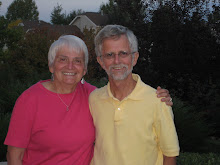We're off to Fengdu and a visit with one of the relocated farmers who was moved as a result of the Three Gorges Dam and the resulting rise in the water level. Back across those temporary walkways and up the stairs (dark area next to the wall).
Entering relocated farmer's house.
The relocations for his community began in 1998. There were four options the family had to choose from. 1) move from lower to high ground on the same side of the river; 2) Lower to higher ground on the opposite side of the river (no facilities in beginning, but now a new village with full services); 3) Move to the big city with more job opportunities; 4) Take a lump payment and find your own way.
The relocation amounts were determined by the number of persons living in the house at the time and the size of the old house. In his families case there were four generations living in the house - a total of 20 people and the house was 200 square meters. He got a settlement of $100,000 Yuan. They began construction of this house in 1999 and moved in 2000. Neighbors and relatives helped construct the house. They decided to add $50,000 Yuan to build a larger house - 500 square meters. Since that time the children have grown and three sons and 1 daughter have moved out of the house so there are currently 6 people living in this large house - still 4 generations.
Storage Room
Large pots are grape wine and smaller pickles.
Kitchen
Bedroom - one of 6
Arbors and steps to gardens.
We headed up to the roof area...three stories.
These were palm seeds drying--they are put in the
white wine to help with their arthritis.
View down to their fishpond from the roof..
More arbors on the roof.
View of neighbors traditional house..this family was
not relocated as their house was above the water
level. Initially, they felt sorry for those relocated
but now there is some bitterness toward them.
They have a small area for crops by the house and others nearby where they raise fruit trees, eggplant, tomatoes, cucumbers. After all this time they are now happy, though not in the beginning. They have a bigger and better house, water in the tap not from the river, convenient to transportation and 2 minutes to town to sell their produce - before it was 2 hours. They currently make 200-400 Yuan/day where before they made 20-30 Yuan/day.
Neighbors house next door.
We hopped back on the bus and headed down the road to the local market.
Loquat and water chestnuts...
Rotisserie Chicken...very small...
Any part of the pig you might wish for!
Lots of eggs - major source of protein here
along with tofu.
Huge winter squash.
And the morning catchup with neighbors.
Thin shelled walnuts you can break open with your hands...
and lovely plants.
Back to the ship and our cruise departure!
Lots of other boat traffic on the river...sampans...
barges...
container ships...
heading up and down the river!
Great scenery even with the clouds...
Old historic temples and towers. I can't imagine
how much more is under the water lost to history.
Back on the boat we had an interesting talk about the Yangtze River Valley. The following facts were brought out: 1. 450 million people live in the valley - home to 1/3 of the total population of China; 2. Traffic on the river is about 80% of the inland transportation; 3. The Valley Provides half of the crop production in China. and 4. Cradle of ancient Chinese civilization. It was a very interesting talk.
It was followed by a talk on Chinese Medicine
by Dr. Lee and a cupping demonstration.
After another hour or so of cruising down the river, we docked and some folks got off to visit Shibaozhai, the red pavilion. At the very top is a Buddist temple build in the 1700's. Access to the temple was by an iron chain attached to the cliff. A nine-story wooden pavilion was added in 1819 so that monks & other visitors could walk up a spiral staircase to access the temple. In 1956 three more stories were added.Tonight they held a very nice Captain's Welcome Reception with champagne and hors d'oeurves followed by a wonderful dinner with flowing wine. And great night views passing along towns and under bridges...at least until 9:30 when the flashy lights went out.































